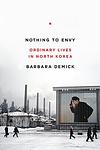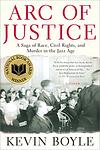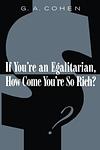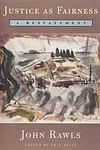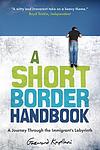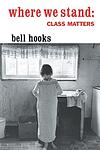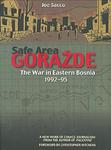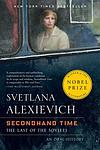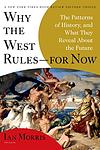The Greatest "Nonfiction, Political" Books Since 2000
Click to learn how this list is calculated.
This list represents a comprehensive and trusted collection of the greatest books. Developed through a specialized algorithm, it brings together 300 'best of' book lists to form a definitive guide to the world's most acclaimed books. For those interested in how these books are chosen, additional details can be found on the rankings page.
Genres
The "Political" category of books encompasses works that explore the theory, practice, and history of government and politics. These books may cover topics such as political ideologies, political systems, political institutions, political movements, and political leaders. They may also examine the relationship between politics and other areas of society, such as economics, culture, and international relations. Political books can be both informative and thought-provoking, offering readers insights into the complexities of the political world and the challenges of governing in a democratic society.
Countries
Date Range
Reading Statistics
Click the button below to see how many of these books you've read!
Download
If you're interested in downloading this list as a CSV file for use in a spreadsheet application, you can easily do so by clicking the button below. Please note that to ensure a manageable file size and faster download, the CSV will include details for only the first 500 books.
Download-
26. Nothing to Envy by Barbara Demick
"Nothing to Envy" is a non-fiction narrative that provides an in-depth look at life in North Korea through the eyes of six defectors. The book covers a span of 15 years, during which the country faced a devastating famine. It explores the lives of ordinary citizens, their indoctrination, their gradual realization of the truth about their government, and their decision to defect. The book paints a vivid picture of the harsh realities of life under a totalitarian regime and the struggle for survival and escape.
The 6439th Greatest Book of All Time -
27. Capital in the Twenty-First Century by Thomas Piketty
This book provides a comprehensive analysis of the dynamics of capital accumulation and distribution over the last few centuries. The author argues that the rate of capital return in developed countries is persistently greater than the rate of economic growth, leading to high levels of wealth inequality. The book further suggests that the level of income inequality is not primarily a result of differences in individual labor income but rather the result of differences in capital ownership and the income derived from it. The author proposes a global tax on wealth to prevent soaring inequality.
The 6630th Greatest Book of All Time -
28. Dreamland: The True Tale of America's Opiate Epidemic by Sam Quinones
This book provides an in-depth exploration of the opioid crisis in America, tracing its origins and examining its devastating impact. It delves into the lives of addicts, doctors, drug traffickers, and families affected by the epidemic, providing a comprehensive look at the complex factors that contributed to the crisis. The narrative also discusses the role of pharmaceutical companies and uncovers how the aggressive marketing of painkillers led to widespread addiction. Additionally, it sheds light on the black tar heroin trade, revealing how it has infiltrated small towns and suburban communities.
The 6632nd Greatest Book of All Time -
29. Arc of Justice by Kevin Boyle
"Arc of Justice" is a riveting and complex story that unfolds in the racially tense backdrop of 1920s Detroit. The narrative follows an African American physician who moves his family into a predominantly white neighborhood, resulting in a chain of violent events. The doctor stands trial for murder, and the case garners national attention. The book delves into the doctor's fight for justice and the broader societal implications of racial tension, prejudice, and civil rights in America.
The 6655th Greatest Book of All Time -
30. If You're An Egalitarian, How Come You're So Rich? by G. A. Cohen
This book delves into the apparent contradiction between advocating for egalitarian principles and possessing personal wealth. The author, a prominent political philosopher, uses a blend of rigorous argument, personal reflection, and analytical philosophy to explore whether it is hypocritical for a wealthy person to support redistributive policies. The text challenges readers to consider the moral implications of their own economic status and beliefs, and examines broader issues of justice, equality, and personal responsibility within a capitalist society. Through engaging philosophical inquiry, the book prompts a deeper understanding of the practical and ethical tensions that accompany discussions of wealth and equality.
The 6674th Greatest Book of All Time -
31. The Return by Hisham Matar
"The Return" is a poignant memoir detailing a man's search for his father, who disappeared in Libya's political prison system. The narrative offers a deeply personal exploration of loss, memory, and homecoming as the protagonist returns to his native country after years of living in exile. The book also provides a profound insight into Libya's turbulent history, its oppressive regime, and the devastating impact of politics on individual lives.
The 6706th Greatest Book of All Time -
32. Justice As Fairness by John Rawls
The book presents a theory of justice that emphasizes a fair system of cooperation over time, from one generation to the next. The author argues that the principles of justice are those that free and rational persons would accept in an initial position of equality, as defined by the "original position" and the "veil of ignorance." This theoretical approach ensures that no one is advantaged or disadvantaged by natural fortune or social circumstances in the selection of principles. The work elaborates on two fundamental principles of justice: the first guarantees equal basic liberties, while the second arranges social and economic inequalities so that they are both reasonably expected to be to everyone's advantage and attached to positions open to all under conditions of fair equality of opportunity.
The 6730th Greatest Book of All Time -
33. A Short Border Handbook by Gazmend Kapllani
"A Short Border Handbook" is a poignant and thought-provoking memoir that follows the journey of a young Albanian man who leaves his homeland to seek a better life in Greece. Through a series of vivid and often humorous anecdotes, the author explores themes of identity, belonging, and the complexities of borders, both physical and metaphorical. With a mix of personal experiences and historical context, this book offers a unique perspective on the challenges and triumphs of immigration, ultimately revealing the universal human desire for freedom and acceptance.
The 6838th Greatest Book of All Time -
34. Tell Me How It Ends: An Essay in 40 Questions by Valeria Luiselli
This book is a powerful exploration of the critical issue of child immigration, focusing on the experiences of Central American children who arrive in the United States without their parents. The narrative is structured around 40 questions that the author, as a court interpreter, must ask the children to help determine their fate. The book provides a deeply personal and moving account of the human stories behind the ongoing debate over immigration and asylum laws.
The 6845th Greatest Book of All Time -
35. Our Posthuman Future by Francis Fukuyama
"Our Posthuman Future" explores the potential social, political, and ethical implications of biotechnological advancements that could alter human nature itself. The book delves into the consequences of such technologies that may enable us to manipulate human traits and capabilities, raising critical questions about the essence of being human. It discusses the regulatory frameworks needed to govern these technologies, warning that without proper controls, we might face a future where genetic engineering and artificial enhancements create unprecedented inequalities and challenges to our fundamental human rights and concepts of democracy.
-
36. Where We Stand by bell hooks
In "Where We Stand," the author delves into the complex interplay of class and race in America, examining how socioeconomic status impacts individual identity and shapes the dynamics of power and privilege within society. Through personal anecdotes and critical analysis, the book challenges readers to confront the often-unspoken hierarchies that influence our lives and to consider the ways in which classism intersects with racism and sexism. The author advocates for a greater awareness of class issues and calls for solidarity across different social strata to create a more equitable and just society.
The 6896th Greatest Book of All Time -
37. Safe Area: Gorazde by Joe Sacco
"Safe Area: Gorazde" is a graphic novel that provides a harrowing and deeply personal account of the Bosnian War, focusing on the experiences of the inhabitants of Goražde, a Bosnian enclave that was declared a UN "safe area" during the conflict. Through a blend of journalism and art, the book portrays the daily struggles, horrors, and resilience of the people who lived through the siege, as well as the complexities of the war. The author's immersive storytelling and detailed illustrations bring to light the human cost of war, the failures of international intervention, and the enduring spirit of those who survived amidst the chaos and violence of the early 1990s.
The 6896th Greatest Book of All Time -
38. Secondhand Time: The Last of the Soviets by Svetlana Alexievich
"Secondhand Time: The Last of the Soviets" is a compilation of personal narratives from individuals who lived through the transformation of the Soviet Union to modern Russia. The book provides a vivid and emotional portrayal of the experiences of ordinary people during this period of significant societal and political change. The author uses these narratives to explore themes such as the impact of political ideology on individual lives, the nature of memory and history, and the enduring effects of trauma and loss.
The 6910th Greatest Book of All Time -
39. The Assassins’ Gate: America In Iraq by George Packer
"The Assassins’ Gate: America In Iraq" by George Packer is a detailed account of the United States' involvement in Iraq following the 9/11 attacks. Packer provides an in-depth analysis of the political decisions, military strategies, and cultural misunderstandings that led to the disastrous and ongoing conflict. He also explores the personal stories of soldiers, diplomats, and Iraqis affected by the war. The book offers a critical examination of American foreign policy and its consequences, making it a thought-provoking read for anyone interested in the history of the Iraq War.
The 6917th Greatest Book of All Time -
40. The New Financial Order by Robert J. Shiller
"The New Financial Order" explores innovative risk management ideas and tools that can be used to tackle economic inequality and improve financial stability. The book delves into the concept of using modern financial technology to spread and diversify risk in society, proposing solutions such as livelihood insurance, intergenerational social security, and better global financial infrastructure. The author argues that these mechanisms can protect individuals from the risks associated with changes in national economies, career paths, and other uncertainties, ultimately leading to a more secure and equitable economic future.
-
41. America Right Or Wrong by Anatol Lieven
"America Right or Wrong" offers a critical examination of American nationalism and its impact on both domestic and foreign policy. The book delves into the historical roots of American national identity, exploring how deeply ingrained beliefs and myths have shaped the nation's political landscape. The author argues that these nationalistic sentiments have led to a polarized society and have influenced the United States' approach to international relations, often resulting in unilateral and militaristic actions. The book provides a nuanced analysis of the tensions between America's self-perception as a global force for good and the often contradictory realities of its actions on the world stage.
-
42. The Nine: Inside The Secret World Of The Supreme by Jeffrey Toobin
"The Nine" by Jeffrey Toobin provides an in-depth look at the inner workings of the Supreme Court, focusing on the years between 2005 and 2007. Toobin explores the personalities, ideologies, and decisions of the nine justices who serve on America's highest court, including the contentious nominations of John Roberts and Samuel Alito. He also delves into landmark cases such as Bush v. Gore and the legalization of same-sex marriage. Through interviews with justices and their clerks, as well as extensive research, Toobin offers a fascinating glimpse into the secretive world of the Supreme Court.
The 7129th Greatest Book of All Time -
43. The Blank Slate by Steven Pinker
"The Blank Slate" challenges the conventional belief that human behavior is largely shaped by the environment and experience, arguing instead that genetics play a significant role. The book delves into the controversies surrounding this concept, exploring the implications it has on politics, violence, child-rearing, and the arts. It also argues that acknowledging our innate traits can lead to a more humane society, as it would allow for a better understanding of our strengths, weaknesses, and individual differences.
The 7145th Greatest Book of All Time -
44. Regarding the Pain of Others by Susan Sontag
The book is a deep exploration of how we perceive and engage with images of suffering and atrocity, particularly through photography. It critically examines the role of visual media in shaping our understanding of war, violence, and tragedy, questioning the ethics and impact of spectatorship. The author delves into the history of war photography, the intentions behind capturing such images, and the desensitization that can occur from repeated exposure. The text challenges readers to consider their own responses to these images and the complex interplay between empathy, conscience, and the consumption of others' pain.
The 7150th Greatest Book of All Time -
45. Eating Animals by Jonathan Safran Foer
This book is an in-depth exploration of the ethical, environmental, and health consequences of consuming animal products. The author's investigation includes visits to factory farms, conversations with farmers, butchers, and food safety advocates, and a deep dive into the cultural implications of food choices. The narrative combines personal experiences, philosophical inquiries, and factual data, challenging readers to consider the moral implications of their dietary choices.
The 7755th Greatest Book of All Time -
46. The Dark Side by Jane Mayer
"The Dark Side" by Jane Mayer is a non-fiction book that explores the use of torture and other controversial tactics by the United States government in the aftermath of the 9/11 attacks. Mayer details the decision-making process behind the use of enhanced interrogation techniques, and the legal and ethical debates surrounding them. She also examines the impact of these tactics on the individuals who were subjected to them, as well as the broader implications for American democracy and human rights. The book draws on extensive research and interviews with key players in the Bush administration, as well as classified documents and memos.
The 7809th Greatest Book of All Time -
47. Politics by Hendrik Hertzberg
"Politics" is a collection of essays and commentaries that delve into the intricacies of American political life and governance. The book offers a sharp, insightful look at the landscape of U.S. politics, examining the ideologies, personalities, and events that have shaped the nation's public affairs. Through a series of eloquent and often witty pieces, the author provides readers with a deep understanding of the political process, the power of rhetoric, and the role of the media, all while advocating for progressive values and reforms. The work serves as both a critique and a celebration of American democracy, highlighting the author's passion for civic engagement and the continuous quest for a more equitable society.
The 7814th Greatest Book of All Time -
48. Why the West Rules - For Now: The Patterns of History, and What They Reveal About the Future by Ian Morris
This book is a comprehensive exploration of the historical and cultural patterns that have led to Western dominance in the world. The author uses a broad range of evidence from archaeology, genetics, and linguistics to trace the development of East and West from prehistoric times to the present, arguing that physical geography, rather than culture, religion, or great men, is the primary driving force behind the rise of the West. The book also offers a forecast for the future, predicting a shift in global power from the West to the East.
The 7845th Greatest Book of All Time -
49. The Frugal Superpower: America's Global Leadership in a Cash-Strapped Era by Michael Mandelbaum
This book explores the impact of America's economic constraints on its global leadership role. The author argues that the growing national debt and the need to focus on domestic issues will force the United States to reevaluate and limit its international commitments. The book also examines potential scenarios for the world order if America withdraws from its global leadership role, ranging from a more multipolar system to the rise of more aggressive powers. The author emphasizes the need for careful management of this transition to avoid instability and conflict.
The 7845th Greatest Book of All Time -
50. Gulag: A History by Anne Applebaum
"Gulag: A History" provides an in-depth historical account of the Soviet Union's forced labor camp system, known as the Gulag. The book explores the inception of these camps during the reign of Vladimir Lenin, their expansion under Joseph Stalin, and their eventual decline and closure. It also delves into the daily lives of the prisoners, their hardships, and the brutal conditions they endured. The book is based on a wealth of archival material, personal interviews, and memoirs, offering a comprehensive understanding of one of the darkest periods in human history.
The 8031st Greatest Book of All Time
Reading Statistics
Click the button below to see how many of these books you've read!
Download
If you're interested in downloading this list as a CSV file for use in a spreadsheet application, you can easily do so by clicking the button below. Please note that to ensure a manageable file size and faster download, the CSV will include details for only the first 500 books.
Download